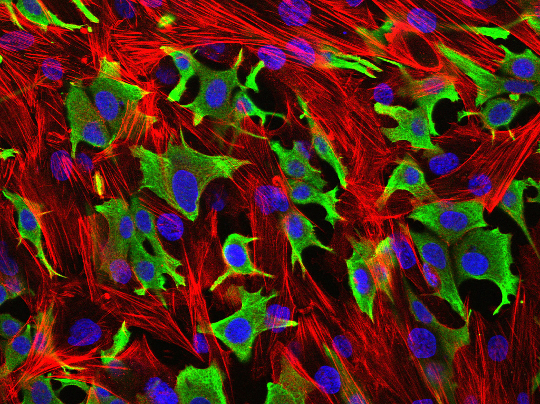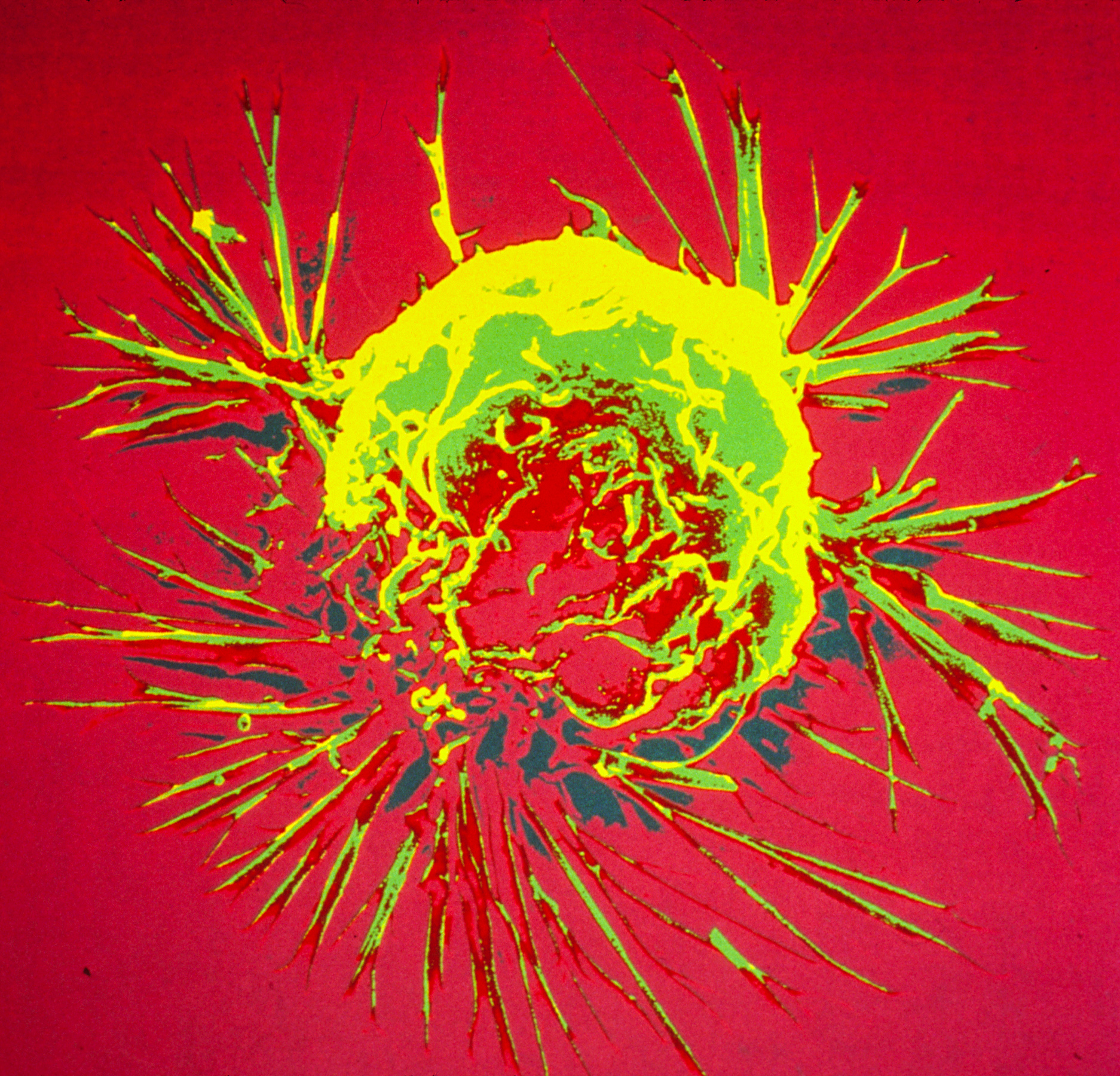News and features
Read the latest news and features about our world-leading research, discoveries, fundraising and philanthropy. If you want to keep updated on our news, you can follow us on social media or sign up for our Search newsletter.
If you’re a journalist and want to find out more, you can contact our media relations team.

Drug combination slows breast cancer spread
A combination of two drugs delays progression of advanced, aggressive breast cancer by an average of nine months – working in all subsets of the most common type of breast cancer, research has shown.
-and-actin-(green)-julia-sero-the-icr-2011.jpg?sfvrsn=14c02140_2)
‘Ecologically diverse’ breast cancers more likely to be deadly
Breast cancers which are particularly complex and diverse, as judged by a test used in ecology to analyse species of animals and plants, are particularly likely to progress and lead to death, a new study shows.

Scientists identify protein used by breast tumours to ‘radicalise’ normal cells and spread cancer
Wnt7a protein found to be key "rallying call" secreted by aggressive tumours to help recruit non-cancerous fibroblasts and enable growth.

Blood test detects when hormone treatment for breast cancer stops working
Scientists have developed a highly sensitive blood test that can spot when breast cancers become resistant to standard hormone treatment, and have demonstrated that this test could guide further treatment.

New ‘mutation-tracking’ blood test could predict breast cancer relapse months in advance
Scientists have developed a blood test for breast cancer to spot patients will suffer a relapse after treatment, months before tumours are visible on hospital scans.

Drugs for worms and river blindness could treat breast cancer
Cheap drugs which treat parasitic worms and conditions such as river blindness could be used for women with a type of breast cancer that often fails to respond to standard therapies.

Drug combination controls breast cancer for over twice as long
A new drug delays the progression of advanced breast cancer by over twice as long when used in combination with standard treatment, compared to standard treatment alone, a major clinical trial shows.

World-first cancer drugs could work in larger group of patients
A pioneering class of drugs that target cancers with mutations in the BRCA breast cancer genes could also work against tumours with another type of genetic fault, a new study suggests.

‘Stem cell’ test could identify most aggressive breast cancers
Breast cancers cells that behave like adult stem cells are more likely to spread to other parts of the body, according to research.

New pathway identified for debilitating skin condition
ICR scientists have discovered that a type of signal within tumour cells is critical to the development of a rare and debilitating inherited skin condition.

ICR welcomes olaparib approval by European Medicines Agency
The European Medicines Agency has approved olaparib for women with ovarian cancer who have a BRCA1 or BRCA2 mutation.

Highlights of the year, 2014
2014 has been full of exciting research results for the ICR. We have selected ten of our discoveries from the past year, which we'll publish every day over the next two weeks
